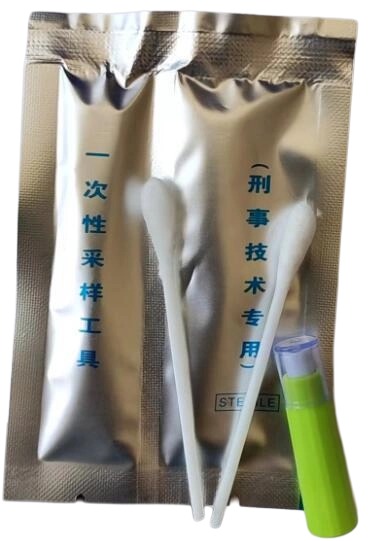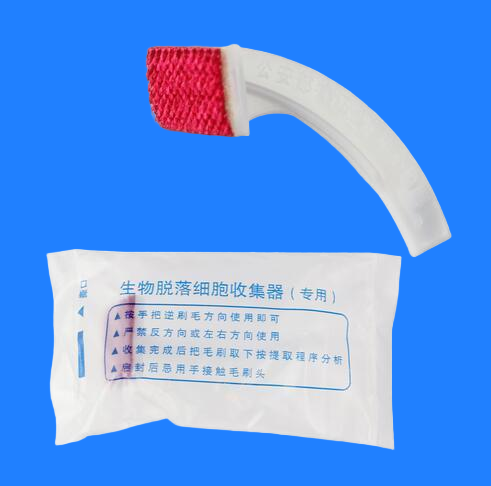Trace Evidence Kits: For Field & Lab
Trace biological evidence collection kits are specialized tools designed for the collection and preservation of biological samples, such as DNA, blood, saliva, and hair, from crime scenes, accident sites, or suspected contamination areas. These kits are crucial for both field and laboratory use, ensuring reliable and contamination-free sample collection for forensic analysis. Usage Methods: Preparation:... Continue reading→
Breakable Evidence Swabs: Use & Storage
Breakable single-head biological evidence swabs are designed for the collection of biological samples from crime scenes or medical settings. These swabs offer convenience, ease of use, and superior sample collection, with a breakable design that allows for safe and secure storage of the sample after collection. Usage Methods: Preparation: Ensure that the swab is sterile... Continue reading→
D-Shield Microbial Swabs: User Guide
D-Shield microbial evidence extraction swabs are specialized tools used for collecting microbial samples from surfaces, fluids, or biological materials in various environments. These swabs are designed to preserve microbial integrity, making them essential for forensic investigations, clinical diagnostics, and environmental testing. Operational Guide: Preparation: Ensure the swabs are sterile and individually packaged. Wear gloves to... Continue reading→
Usage Methods and Extraction Techniques for Shed Cell Collectors
Shed cell collectors are specialized tools used for collecting biological samples, primarily focusing on shedding cells from surfaces or tissues in forensic and medical applications. The collection and extraction techniques ensure the preservation of cellular material for accurate analysis. Usage Methods: Preparation: Before use, ensure the collector is sterile and ready for sample collection. Ensure... Continue reading→
Rigid-Base Shed Cell Collectors for Forensics
Hard-base shed cell collectors are specialized tools used in forensic field work for the collection of biological samples, particularly blood and other bodily fluids. These collectors are designed to ensure the effective capture of cells and preserve sample integrity for subsequent analysis in forensic investigations. Application in Forensic Field Work: Blood Collection: Hard-base shed cell... Continue reading→
DNA Blood Collection for Paternity Testing
Standardized DNA blood sample collection procedures are crucial in ensuring the accuracy and reliability of paternity testing. Proper sample collection, handling, and storage are essential to avoid contamination and maintain the integrity of the DNA for accurate results. Collection Procedures: Patient Identification: Properly verify the identity of the individuals involved in the paternity test to... Continue reading→
Preventing Cross-Contamination in Blood Cards
Blood sample collection cards are essential tools for collecting, preserving, and transporting blood samples in various diagnostic and forensic applications. However, preventing cross-contamination is critical to ensure sample integrity and reliable analysis. Several methods can be employed to minimize the risk of contamination when using these cards. Prevention Methods: Sterile Collection Tools: Use sterilized lancets... Continue reading→
Field Blood Sample Collection and Submission Workflow Analysis
Effective blood sample collection in field conditions is critical for ensuring the reliability and integrity of diagnostic results. A streamlined workflow for blood sample collection and submission can minimize contamination risks, reduce delays, and ensure the accurate analysis of the sample. Workflow Steps: Preparation: Before collection, ensure the availability of sterilized equipment (lancets, collection tubes,... Continue reading→
Room-Temp DNA Blood Preservation
Long-term room temperature preservation of DNA blood samples relies on innovative scientific methods that prevent DNA degradation without the need for refrigeration. The key to successful room temperature storage lies in stabilizing the DNA and preventing the activity of nucleases, enzymes that can break down DNA. Scientific Principles: Desiccation: Drying the blood on special absorbent... Continue reading→
Disposable Tools for Blood Draws
One-time use sampling tools are designed to enhance both the safety and efficiency of blood collection processes. These tools, including lancets, collection cards, and microtubes, offer several advantages for medical professionals and researchers. The primary benefit of these tools is their single-use design, reducing the risk of contamination and cross-contamination between samples. Since they are... Continue reading→








.png)
